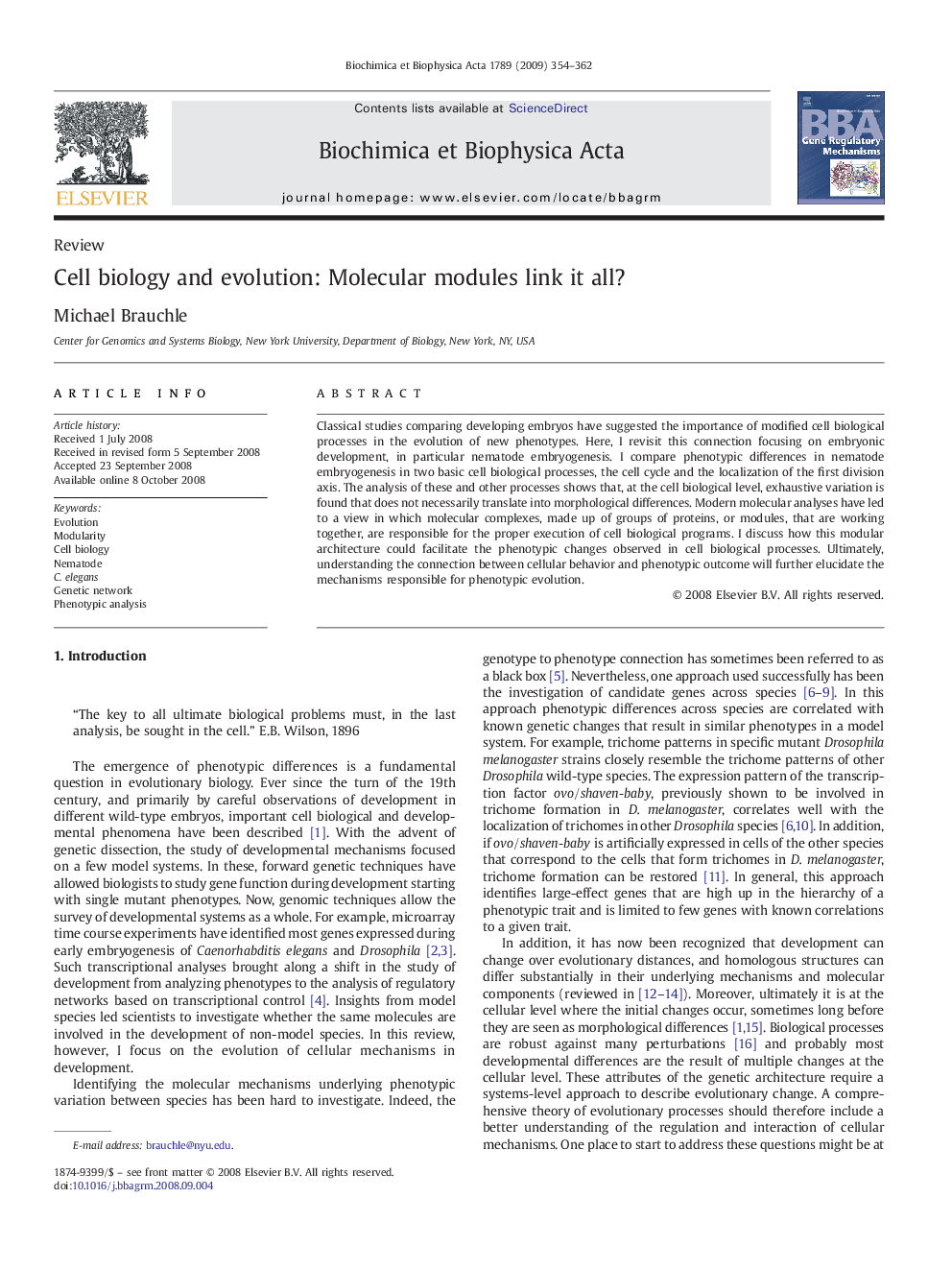| Article ID | Journal | Published Year | Pages | File Type |
|---|---|---|---|---|
| 1946942 | Biochimica et Biophysica Acta (BBA) - Gene Regulatory Mechanisms | 2009 | 9 Pages |
Classical studies comparing developing embryos have suggested the importance of modified cell biological processes in the evolution of new phenotypes. Here, I revisit this connection focusing on embryonic development, in particular nematode embryogenesis. I compare phenotypic differences in nematode embryogenesis in two basic cell biological processes, the cell cycle and the localization of the first division axis. The analysis of these and other processes shows that, at the cell biological level, exhaustive variation is found that does not necessarily translate into morphological differences. Modern molecular analyses have led to a view in which molecular complexes, made up of groups of proteins, or modules, that are working together, are responsible for the proper execution of cell biological programs. I discuss how this modular architecture could facilitate the phenotypic changes observed in cell biological processes. Ultimately, understanding the connection between cellular behavior and phenotypic outcome will further elucidate the mechanisms responsible for phenotypic evolution.
